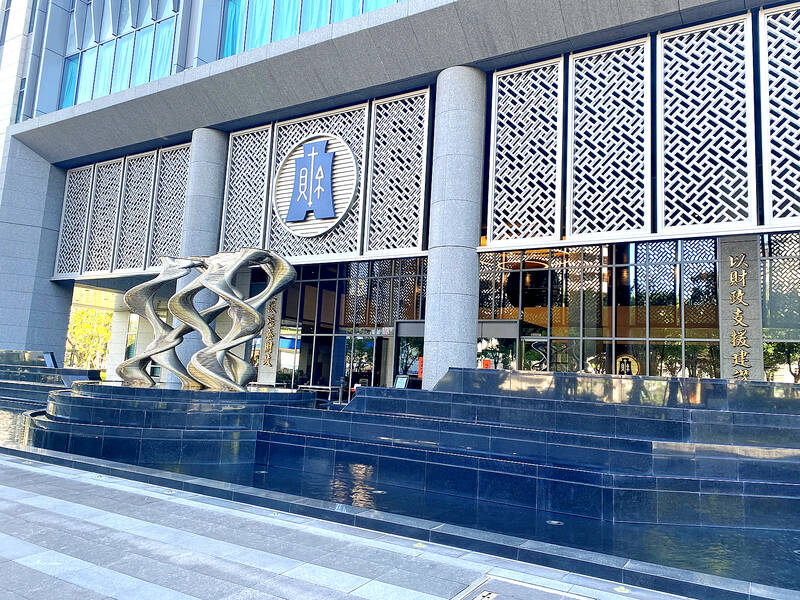Preferential tax rates for owner-occupied homes would benefit 16,000 foreign residents when revisions to the House Tax Act (房屋稅條例) take effect in May next year, the Ministry of Finance said yesterday.
In an effort to ease rampant housing speculation, the government updated Article 5 of the act to create different tax rates for owner-occupied houses, houses leased for public welfare purposes and other residential-only purposes.
Foreigners, stateless persons, individuals originating from China, residents from Hong Kong or Macau, their spouses, or direct relatives who have obtained an Alien Resident Certificate (ARC) and enjoy the rights to use the land and building at the address linked to their ARC would be considered to have their residences registered to that building, insofar as the land and house tax rates are concerned, the ministry said.

Photo: Cheng Chi-fang, Taipei Times
They would be taxed at the standard 1.2 percent housing tax rate for self-used residences, provided that the land and building comply with Article 5 of the House Tax Act and Article 2 of the Standards for the Recognition of Owner-occupied Houses and of the Status of an Individual to Rent Premises for Public-Welfare Purposes (住家用房屋供自住及公益出租人出租使用認定標準) and is not rented or used for businesses, the ministry said.
If only one family resides at the residence and it is valued under a certain sum, the house would be eligible for the preferential self-use housing tax rate of 1 percent, it said.
Provided that the plot of land observes Articles 9 and 17 of the Land Tax Act (土地稅法) and Article 4 of the Enforcement Rules of the Land Tax Act (土地稅法施行細則) — that the plot of land does not exceed 3 hectares within a city or 7 hectares outside of a city, and that the occupants, their spouses and minor dependents only have one residence in their name — they would be eligible for the 2 percent tax rate for self-use residential land, it said.
Residents and land owners who fit the criteria should submit applications to the local tax office where the property is registered 40 days before the tax is implemented, which is March 22 next year for housing taxes and Sept. 22 next year for land taxes, the ministry said.

SHIPS, TRAINS AND AUTOMOBILES: The ministry has announced changes to varied transportation industries taking effect soon, with a number of effects for passengers Beginning next month, the post office is canceling signature upon delivery and written inquiry services for international registered small packets in accordance with the new policy of the Universal Postal Union, the Ministry of Transportation and Communications said yesterday. The new policy does not apply to packets that are to be delivered to China, the ministry said. Senders of international registered small packets would receive a NT$10 rebate on postage if the packets are sent from Jan. 1 to March 31, it added. The ministry said that three other policies are also scheduled to take effect next month. International cruise ship operators

HORROR STORIES: One victim recounted not realizing they had been stabbed and seeing people bleeding, while another recalled breaking down in tears after fleeing A man on Friday died after he tried to fight the knife-wielding suspect who went on a stabbing spree near two of Taipei’s busiest metro stations, Taipei Mayor Chiang Wan-an (蔣萬安) said. The 57-year-old man, identified by his family name, Yu (余), encountered the suspect at Exit M7 of Taipei Main Station and immediately tried to stop him, but was fatally wounded and later died, Chiang said, calling the incident “heartbreaking.” Yu’s family would receive at least NT$5 million (US$158,584) in compensation through the Taipei Rapid Transit Corp’s (TRTC) insurance coverage, he said after convening an emergency security response meeting yesterday morning. National

PLANNED: The suspect visited the crime scene before the killings, seeking information on how to access the roof, and had extensively researched a 2014 stabbing incident The suspect in a stabbing attack that killed three people and injured 11 in Taipei on Friday had planned the assault and set fires at other locations earlier in the day, law enforcement officials said yesterday. National Police Agency (NPA) Director-General Chang Jung-hsin (張榮興) said the suspect, a 27-year-old man named Chang Wen (張文), began the attacks at 3:40pm, first setting off smoke bombs on a road, damaging cars and motorbikes. Earlier, Chang Wen set fire to a rental room where he was staying on Gongyuan Road in Zhongzheng District (中正), Chang Jung-hsin said. The suspect later threw smoke grenades near two exits

The Forestry and Nature Conservation Agency yesterday launched a gift box to market honey “certified by a Formosan black bear” in appreciation of a beekeeper’s amicable interaction with a honey-thieving bear. Beekeeper Chih Ming-chen (池明鎮) in January inspected his bee farm in Hualien County’s Jhuosi Township (卓溪) and found that more than 20 beehives had been destroyed and many hives were eaten, with bear droppings and paw prints near the destroyed hives, the agency said. Chih returned to the farm to move the remaining beehives away that evening when he encountered a Formosan black bear only 20m away, the agency said. The bear